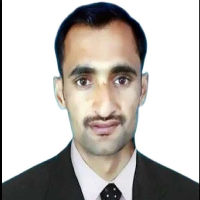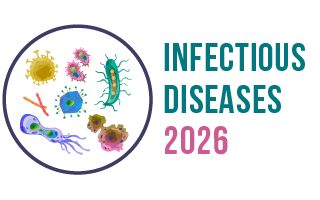4th International Conference on
Infectious Diseases
September 09-10, 2026 | Barcelona, Spain

Address: Avinguda Del Maresme 78 Ronda De Dalt Exit 15, 08940 Comella de Llobregat, Barcelona, Spain
Infectious Diseases 2026

Nagoya University, Pakistan
Abstract:
This study introduces an extended SEIR model with data assimilation to investigate the dynamics of Plasmodium vivax transmission in malaria-endemic regions. The model accounts for asymptomatic and pre-symptomatic cases, which are often undetected but play a significant role in the disease's spread. Using an ensemble Kalman filter, we integrate real-time data into the model, allowing for more accurate estimates of infection rates and the reproduction number over time. The analysis focuses on regional variations, comparing areas with different levels of vector control and treatment efficacy. Sensitivity tests are performed to assess the model’s robustness against varying medical parameters such as treatment rates and infection periods. Our results provide insights into the effectiveness of current malaria control measures and offer recommendations for optimizing intervention strategies.
Biography:
Ihtisham Ul Haq is a mathematician at the School of Mathematics, Nagoya University, Japan. His research focuses on advanced mathematical theories and their applications, contributing significantly to the field through innovative solutions and publications.
